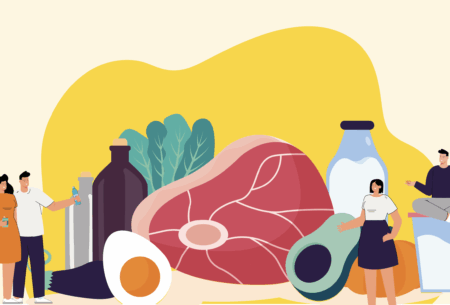Coeliac Disease (CD) is an auto-immune condition, affecting around 1% of the UK population, for which currently the only treatment is adhering to a lifelong gluten free (GF) diet.
Finding out your child has been diagnosed with CD can feel overwhelming, particularly when it is likely that you will have to change the way you prepare and cook meals at home to maintain your child’s health and prevent the resurfacing of any CD-related symptoms. All children should be reviewed by a paediatric dietitian after being diagnosed with CD. During this consultation, the paediatric dietitian will go through the main principles of a GF diet, availability of support and address any questions or concerns you may have. Here are a few tips to help manage life after your child is diagnosed with CD:












